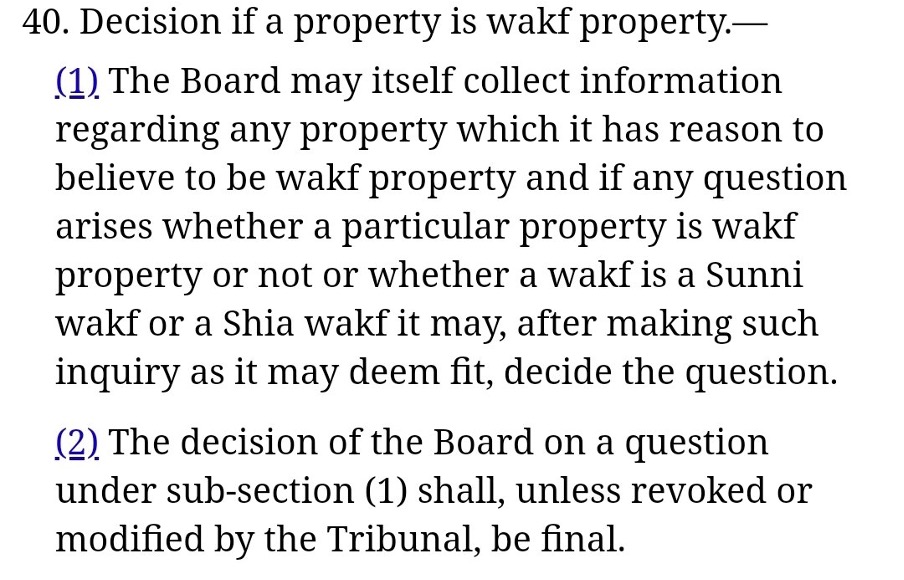While the relevance of the Waqf Act might be questionable, there is also the the problem of illegal land encroachment. Establishments such as the Central Waqf Board could be illegally gaining control of land by terming them as waqf properties. These Boards have time and again been accused of acquiring lands and public places by fraudulent means.
On the other side, are the majority of Mutawalis / custodians and religious leaders working hand in glove with Muslim politicians in grabbing Waqf land? In Telangana reportedly more than 2/3rd of Waqf property has been encroached.
The (M.P., Karnataka) High Courts have held that when an appeal is made against any decision to the Tribunal and the decision of the Tribunal is final then the jurisdiction of the Civil Court is dismissed.
In February 2022 the Supreme Court observed that the Waqf Board can determine the nature of the property as Waqf only after conducting an enquiry as prescribed under section 40 of the Waqf Act.
Also in Feb 2022 - SC upheld Telangana govt’s right over 1654 acre Hyderabad land claimed by Wakf Board. The Telangana government had leased out the land for setting up a university etc., township and other institutions of repute. The state government had appealed to the Supreme Court after losing out before the Andhra Pradesh HC in April 2012. The state had claimed that as a result of the HC ruling, it would be required to pay a huge sum running into thousands of crores of rupees as compensation to the Telangana Waqf Board.
In a judgement related to Rajasthan, in April 2022, the Supreme Court held that in the absence of proof of dedication or "grant" (the disputed area) cannot be recognised as a religious place for offering namaz.
Next : Evacuee and/or Enemy property
Previous : On Waqf Property
